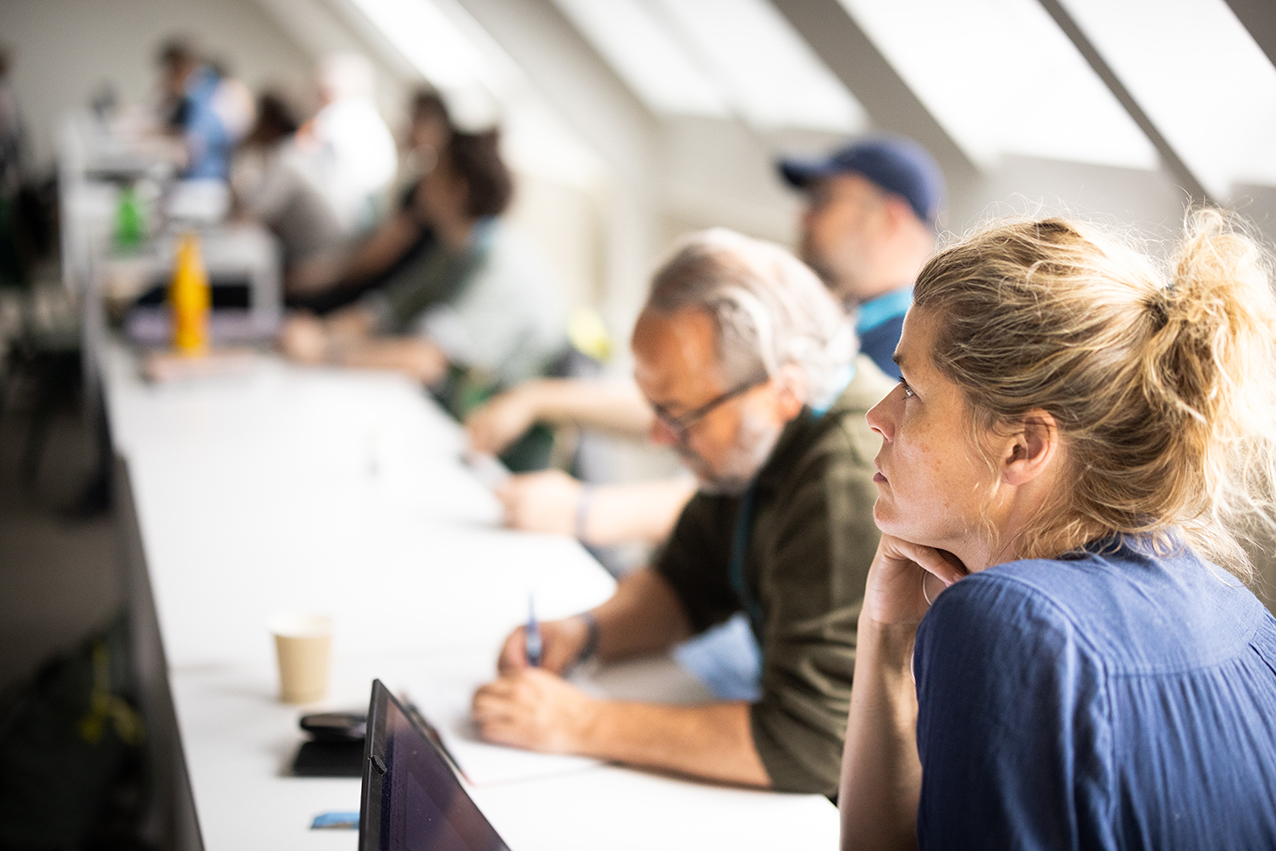Every year, we are pleasantly surprised by the number of quality pitches we receive. The best ideas come from our community, and we are looking forward to your contributions this year! The call for proposals is now open.
But what makes a great Dataharvest session? Here are some pitching guidelines:
- Think methodology, not content: Tell us HOW you did something, rather than WHAT you did. For example, don’t pitch “We exposed Russian smugglers” – instead pitch “How to track Russian weapon smugglers on Telegram”. Be concrete and instructive, so colleagues can learn from your experience.
- Do you have a (nerdy) skill or a helpful tool? We are interested in those! You can pitch us a session/workshop about teaching a specific OSINT skill, a visualization tool you want to showcase, or a data set you put together, and other journalists could benefit from.
- Please be as detailed as possible. We can work together to shape your initial idea, but in your initial pitch, please explain your proposal beyond generic terms (i.e. “using OSINT in a war context”). Explain what the audience will get from your session, and let us know your particular expertise or connection to the topic.
- Think European: Dataharvest is the European investigative journalism conference (and no, Europe doesn’t mean only the EU, but all the Council of Europe countries). Stories may take place outside of Europe, but they need to have a European connection (an example: “How European companies supplied dictators cyber-surveillance tools”). Unfortunately, we are unable to subsidise the travel of speakers coming from outside of Europe.
- Think European and national: You may have a great national investigation on a topic that is equally relevant in other countries. Pitch this kind of session as an “instant inspiration” session where you explain to others how they can do the same on their home turf.
- Don’t be (too) academic: We don’t have many general debates and presentations of papers about the future of journalism, but we will consider a session that presents academic work or a dataset developed by scientists or civil society that journalists can work with, or a session that talks about collaborative research between journalists and scientists, etc. Some examples from last years: “Media freedom at risk: Can the EU protect us?” or “How to think about collaborative science journalism.”
When it comes to the session types, we in general distinguish between:
Presentations – a session that has one or a maximum of two speakers presenting a specific methodology or a dataset (check out some of the examples from last year: “How to verify leak data: A checklist approach” or “Who funds Europe’s political parties? We have the data!“) or a presentation of a particular investigation (example: “One year undercover to reveal political troll factory“).
Panels – a number of speakers talking about a specific topic, dilemma, or methodology (e.g. “Has the Anglo approach colonised journalism?“, “Looking in the mirror: How to navigate power dynamics within cross-border teams“).
Hands-on sessions – Sessions teaching a specific skill(set), often (but not necessary) in data journalism (e.g. “Finding fires using Python and Satellite” and “Mastering SQL Basics: Moving beyond spreadsheets for large datasets“).
Roundtables – group brainstorms about a hot-button topic or a method (e.g. “How can projects, organizations, and their infrastructure become more independent from big tech – again?” and “Have you been SLAPPed?“)
As a rule of thumb, we are looking for presentations and hands-on sessions rather than panels; we are also more likely to accept pitches for panels than big roundtables. Due to budget restrictions, we can (in general) only subsidise travel and accommodation of one speaker from the same organisation per presentation (could be two, but only if they bring in different competencies to the session). However, we are interested in all fresh, creative, and inspiring ideas, so send us your proposals, and we’ll figure out the logistics!
The Dataharvest team is small but passionate. We are all first and foremost (working) journalists, and not professional conference organisers; we are embedded in the investigative, cross-border, and data journalism community in Europe, and we seek to offer content that appeals to and is useful for the other members of the community. We rely on your ideas and engagement to create a successful conference. Thank you for helping us out and trusting us with your ideas!
We will have an online session on December 16 where you can ask us all questions about what to pitch for Dataharvest 2025! Stay tuned!
Go to the form to pitch a session.

